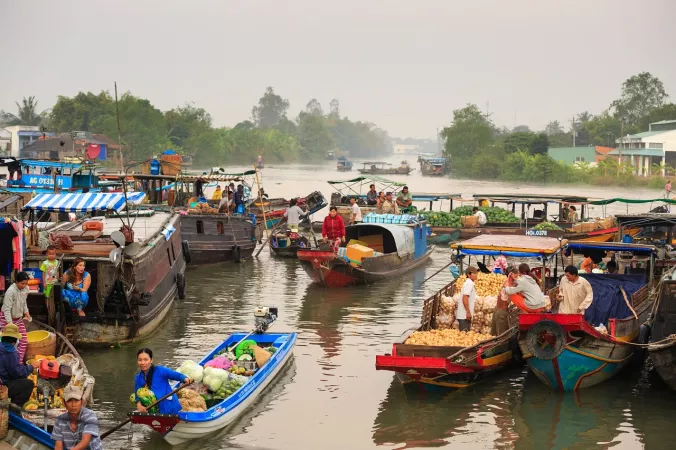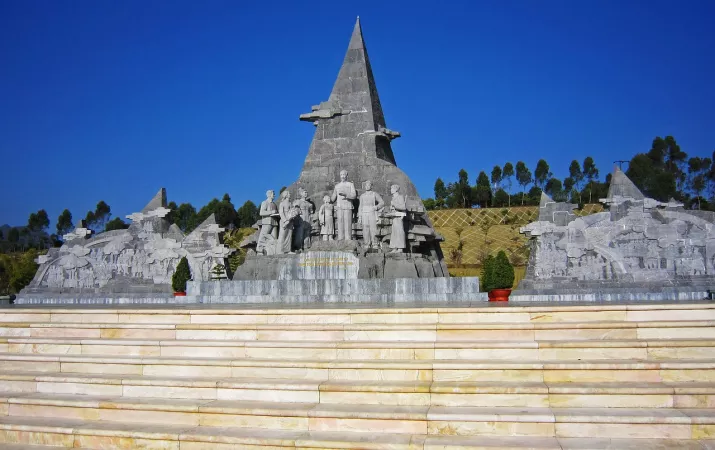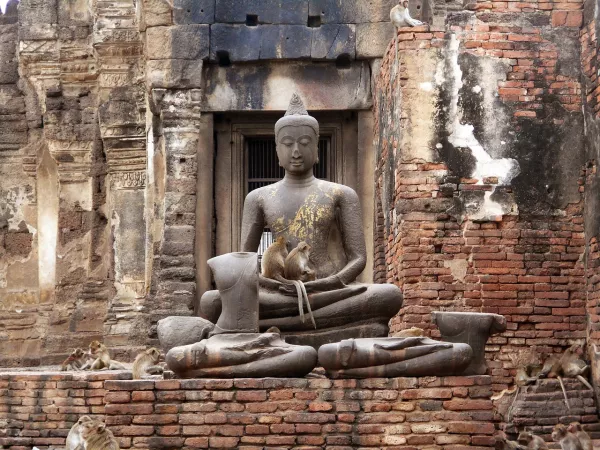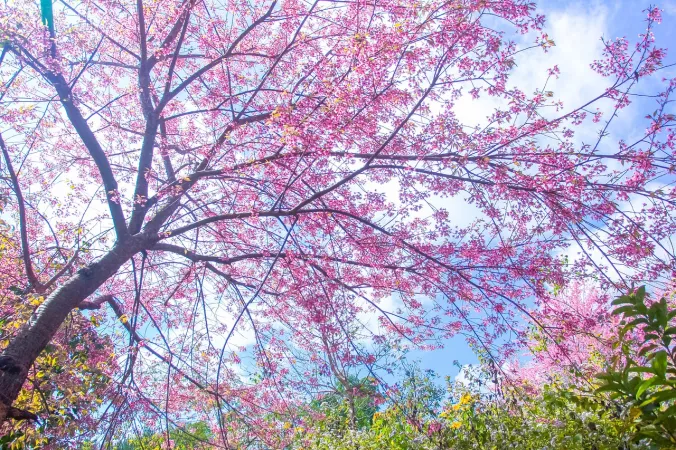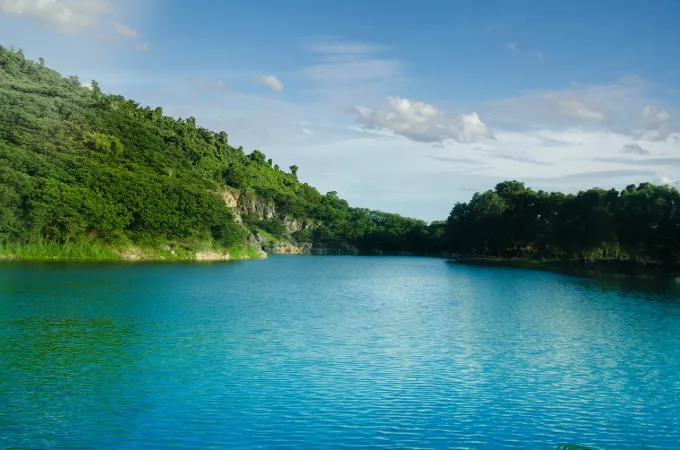
Tay Ninh Travel Guide
Tay Ninh, located in southern Vietnam, is a destination known for its historical and cultural significance. The province is famous for being the home of the Cao Dai religion, a unique fusion of different world religions. Tay Ninh boasts a rich history, stunning landscapes, and a vibrant cultural scene that draws travelers from all over the world.Top Attractions in Tay Ninh
1. Cao Dai Holy See Temple 2. Black Virgin Mountain 3. Dau Tieng Lake 4. Ba Den Mountain 5. Cu Chi TunnelsTay Ninh is Famous for
Its iconic Cao Dai Holy See Temple, a striking architectural masterpiece and the center of the Cao Dai religion.Top Attractions in Tay Ninh
- Cao Dai Holy See Temple - Black Virgin Mountain - Dau Tieng Lake - Ba Den Mountain - Cu Chi TunnelsWhat's Great about Travelling to Tay Ninh?
- Rich cultural heritage - Scenic landscapes - Unique religious experiencesWhat's Not So Great about Travelling to Tay Ninh?
- Limited nightlife options - Language barrier for non-Vietnamese speakers - Limited accommodation choicesTravel Tips for Tay Ninh
- Check visa requirements before traveling - Use local transportation for an authentic experience - Respect local customs and traditionsImportant Tay Ninh trip information
- Ideal Duration: A few days to explore the main attractions.
- Best Time to Visit: December to April for pleasant weather.
- Nearby Airports and Railway Stations: Tan Son Nhat International Airport in Ho Chi Minh City is the nearest airport, and Tay Ninh Railway Station serves the province.
FAQ's on Tay Ninh
Q1: What is the best time to visit Tay Ninh?
The best time to visit Tay Ninh is during the dry season from December to April when the weather is pleasant for exploring outdoor attractions like the Cao Dai Temple and Black Virgin Mountain. Avoid the rainy season from May to November to enjoy your trip without interruptions from heavy rainfall.
Q2: Do I need a visa to travel to Tay Ninh?
Most tourists will need a visa to travel to Tay Ninh. However, some nationalities may be exempt or eligible for visa on arrival. It is advisable to check with the nearest embassy or consulate for the most up-to-date visa requirements before your trip.
Q3: What are the must-visit attractions in Tay Ninh?
Tay Ninh is famous for the Cao Dai Holy See Temple, the unique Cao Dai religion, and the mystical Black Virgin Mountain. Other must-visit attractions include the historic Ba Den Pagoda and the picturesque Dau Tieng Lake.
Q4: Is Tay Ninh a safe place to travel?
Tay Ninh is generally a safe destination for travelers. However, like any other place, it is advisable to be cautious of pickpocketing in crowded areas and to avoid wandering alone in unfamiliar places at night.
Q5: What is the local currency in Tay Ninh and can I use credit cards?
The local currency in Tay Ninh is the Vietnamese Dong (VND). While credit cards are accepted in some hotels and restaurants in larger cities, it is recommended to carry cash when visiting smaller towns or rural areas.
Q6: What is the local cuisine like in Tay Ninh?
Tay Ninh offers a diverse culinary experience with dishes like Banh Trang Tron (mixed rice paper salad) and Goi Cuon (fresh spring rolls). Don't miss trying the local specialty, Ca Loc Nuong Trui (grilled snakehead fish). Vegetarian options are also widely available.
Q7: What transportation options are available in Tay Ninh?
Transportation options in Tay Ninh include buses, taxis, and motorbike rentals. Local buses are a cost-effective way to travel between towns, while taxis are convenient for shorter distances. Motorbike rentals are popular for exploring the countryside.
Q8: Are there any cultural norms or etiquette I should be aware of when visiting Tay Ninh?
When visiting Tay Ninh, it is important to dress modestly when visiting religious sites like the Cao Dai Temple. Remove your shoes before entering temples or homes, and show respect to elders by addressing them with (for males) and (for females). Avoid public displays of affection as it is considered inappropriate in Vietnamese culture.
Q9: I am a travel agent. How can I buy travel leads of Tay Ninh?
Register yourself as a travel agent at agents.tripclap.com and then you can buy travel leads to Tay Ninh once your account is approved. For more details contact our support team at +91-8069186564 or support@tripclap.com


